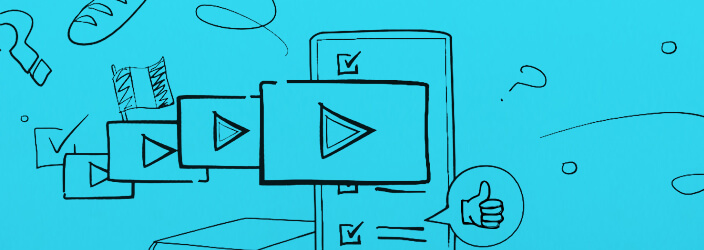What is the GCSE?
The GCSE (General Certificate of Secondary Education) exams provide students with qualifications to prepare them for further education or a career. They are typically taken by students aged 14-16 in the UK at the end of compulsory education, after two years of studying for the exams and coursework. Most students will take between seven and ten GCSEs.
Alongside the core subjects, English, Maths and the sciences, students are required to take additional subjects. Usually students will be given the option to choose these, depending on what their school offers and prioritises. There are over 60 subjects, and different exam boards provide different qualifications for each subject. Depending on the exam board, the content of the GCSE and the structure of the exams will change.
The French GCSE is offered by AQA, Edexcel, OCR and WJEC. The differences between the courses range from the vocabulary students are expected to learn to the topics likely to be covered in the exams, so students should have a clear understanding of what they need to learn for their exams and which resources will be useful for them.
What's the difference between the GCSE and the IGCSE?
The IGCSE (International General Certificate of Secondary Education) is offered to students in countries outside the UK who wish to receive a GCSE qualification. It typically follows the same structure as the GCSE, but there are occasional differences, depending on the subject and the exam board. For instance, the IGCSE for science subjects may require less practical course work than the GCSE as schools in some countries do not have the requisite access to laboratory equipment.
Alexa's GCSE Preparation Course
Alexa’s French GCSE exam preparation course is designed to help students get the best grades they can on all the French GCSE exams. It follows the AQA syllabus and provides extensive resources across six sections in the form of 103 extensive video lessons, as well as support guides, quizzes, gap fill exercises and much more.
The six sections include
Reading - Demo videos, introduction and tips videos, and 60 quizzes designed to improve and perfect students' reading comprehension
Writing - Demo videos, introduction and tips videos, and 60 quizzes designed to help writing in French become second nature for students
Speaking - Demo videos, introduction and tips videos, worksheets and 59 general conversation videos, categorised by theme and topic, to help students perfect their pronunciation. The content in this section will reinforce the material learned in the other sections, with a focus on speaking confidently and fluently
Listening - Demo videos, introduction and tips videos, and 78 exercises ranging from audio quizzes and dictations to multiple choice and 'finish the sentence' exercises
Vocabulary - Over 85 vocabulary lists organised by theme, with each word available in both written and audio form
Conjugations - Conjugation tables for 34 of the most common verbs, conjugated into 6 tenses and available in both written and audio form
Find out more about the structure of the French GCSE Preparation Course here.
Alexa's YouTube Channel
Alexa also provides additional free resources on YouTube to help students get to grips with the French GCSE exams. From learning how to talk about yourself to describing your house, Alexa walks you through the essentials.
For more video content on GCSE French, be sure to check out 'GCSE French With Alexa', our YouTube channel dedicated to helping you revise for the French GCSE.
What does the AQA French GCSE consist of?
The AQA French GCSE is divided into three themes:
Theme 1: People and lifestyle
This theme encompasses three topics:
1. Identity and Relationships with others
2. Healthy living and lifestyle
3. Education and work
Theme 2: Popular culture
This theme encompasses three topics:
1. Free time activities
2. Customs, festivals and traditions
3. Celebrity culture
Theme 3: Communication and the world around us
This theme encompasses three topics:
1. Travel and tourism, including places of interest
2. Media and Technology
3. The environment and where people live
The reading, writing and listening units of the AQA French GCSE are each assessed by a written exam. The speaking unit is assessed by a conversation assessment. Each assessment is worth 60 marks, or 25% of the overall GCSE.
Tips for the GCSE French exams
- Read through the whole paper before you start answering the questions
- Try to spend a proportionate amount of time on each section
- Show off the full range of your vocabulary. Avoid repeating words when you can use an appropriate synonym
- If you don't understand a word or phrase, look for clues in the rest of the sentence
Alexa's French GCSE Preparation Course includes numerous tips for how to ace the exams.
For even more tips, check out our blog on GCSE French exam tips.
Our French courses
People all over the world are learning French online with Alexa Polidoro








